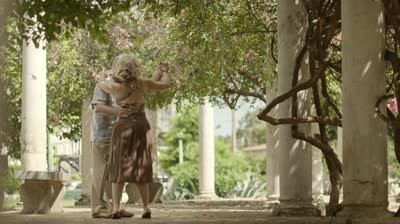Communication is central to our wellbeing: Five ideas & tips to enhance communication
“The single biggest problem in communication is the illusion it has taken place.”
George Bernard Shaw
We are all communicators, however working as a speech and language therapist means that I have an enhanced level of interest in the process of communication.
Most of us are fortunate to be around people for at least some part of our day. Imagine what it must be like to not have anyone to communicate with, or possibly worse, not have the ability to make yourself understood or understand what is being said?
In my work as a speech and language therapist when working with people with dementia, I often wonder if their struggles to communicate can be likened to my struggles to construct sentences in French. I can sometimes produce meaningful utterances if you give me lots of time to respond but rarely quickly enough as part of a fluent conversation. This leaves me feeling frustrated, stupid, sad all at once.
Communication is central to our well being.
Communication plays a fundamental role in maintaining and developing relationships. It is a two way process. It generally involves a minimum of two people interacting in turn taking. Each person has to be both an attentive listener as well as a talker. We have to check out or monitor that what we are saying is being registered and understood.
If one person finds communication difficult, the other person has to attempt to bridge the gap and do more of the work. We have learnt over the years that there are some specific techniques that improve the communication process with people with dementia.
However, we must never lose sight of the fact that everyone is an individual who would have had different styles and skills at communicating prior to the onset of dementia and communication techniques are aimed at generalities rather than specifics.
In this the first of two blogs I am sharing with you some of my ideas and tips to enhance communication with five more to be shared in next weeks blog in “lets talk about dementia”
Five ideas & tips to enhance communication
- It is not just about words.
Non verbal communication is understood more easily than verbal. Pay attention to your non verbal communication (tone of voice, facial expression, gesture etc) and monitor your conversational partners non verbal messages closely.
- Location, location, location.
Ensure the environment is conducive to good communication. This means good lighting, reduction of noise and other distractions. Is the person wearing their hearing aids, glasses? Make sure you have their attention when speaking to them.
- Get to the point.
Keep sentences short and simple. Make one point or statement, allow time for that to be digested before speaking again. Avoid chattering to fill the gaps.
- Message understood?
Check that the person has understood and re phrase if they have not. Write down for them what they have been told if they are still able to read. People often think that a person is understanding more than is the case. This is because they maybe latching onto some key words and non verbal cues not the language.
- Less is often more.
As a conversational partner, accept you need to do more of the work but do not try to over compensate by chattering, even if you think it is about a topic they would have previously enjoyed. One or two words backed up by visual content, for example, and allowing plenty of time for a response will be of more benefit
We would love to hear from you.
- What suggestions and comments can you add to my initial 5 ideas?
- What ideas do you have to enable you keep talking to someone who wants to keep communicating?
 Joy Harris
Joy Harris
SLT,Clinical Lead for Dementia, Lothian
@joysltdem
I work in East and Midlothian Psychiatry of Old Age teams seeing people with communication and/ or swallowing problems from the point of diagnosis of Dementia, and at any stage throughout the patient journey as the need arises.





 Elaine Hunter
Elaine Hunter